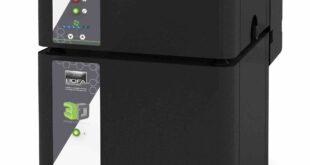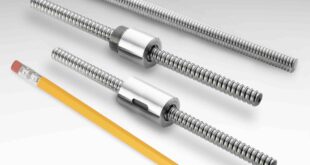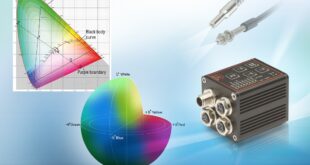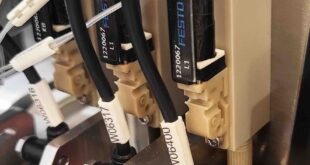Process simplification is key to manufacturers staying ahead in a highly competitive market, as it allows them to deliver products of higher quality at lower costs.
When a premier Chinese producer of food additives, Wuhan Youji Industries, wanted to review one of its purification processes, Sulzer offered an ideal solution.
Advanced fractional crystallisation technologies allowed the manufacturer to reach quality levels that were unattainable with its existing equipment while at the same time improving efficiency.
With production capacities of 200,000 tonnes per annum (approx 220,400 tons per annum) benzoic acid, including 60,000 tonnes per annum (approx. 66,100 tons per annum) of high purity benzoic acid and 50,000 tonnes per annum [approx. 55,100 tons per annum] benzyl alcohol, Wuhan Youji is a global leader in antisepsis, preservation and antioxidation as well as an award-winning pioneer in China’s food additive industry.
The company is particularly active in the production and standardisation of benzoic acid and benzoates, which are widely used as preservatives.
Safety, eco-friendliness and health are key aspects that Wuhan Youji promotes in its own operations and good manufacturing practice guidelines. This commitment drives the company to regularly simplify and enhance its processes.
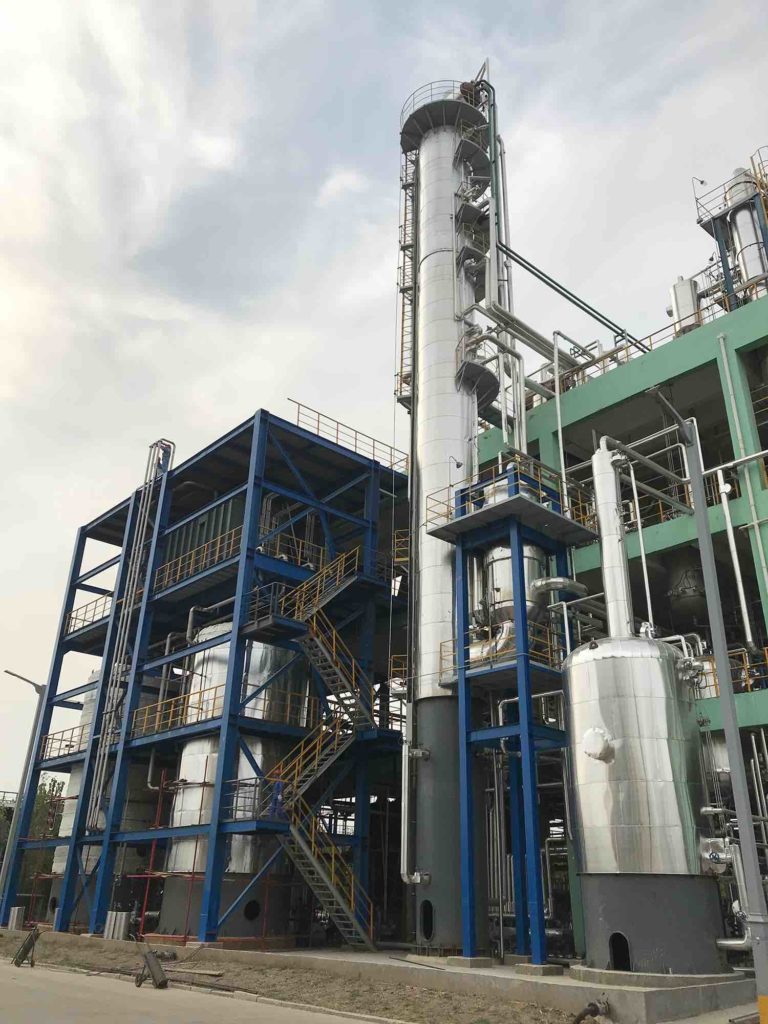
Recently, the company decided to improve one of its most challenging processes: the purification of benzyl benzoate.
Used in flavour and fragrance industries, the chemical needs to have extremely low levels of impurities and appear colourless, ie any remaining foreign matter should not affect the benzyl benzoate’s appearance. Therefore, separation processes that rely on crystallisation are a must, in order to achieve such a highly concentrated substance.
Wuhan Youji’s existing purification method was based on suspension crystallisation. It involved several complex stages as well as a number of pieces of equipment, such as crystallisers, centrifuges and waste disposal systems. In addition, the procedure required constant human intervention and manual operations.
Repeating previous success
To succeed in this ambitious task, Wuhan Youji contacted Sulzer, the leader in separation and mixing technology. The two businesses had developed a good working relationship based on previous projects – Sulzer delivered two high-performance and efficient separation systems for the purification of benzoic acid.
Based on the success of these projects, the chemical manufacturer was keen on getting an innovative solution for the purification of benzyl benzoate.
“By using our proprietary, fully-automated falling film crystallisers, Wuhan Youji was able to produce benzoic acid of the highest quality and purity, greatly increasing the business’ competitiveness in China,” explains Matthias Schäfer, Project Manager at Sulzer.
Sulzer’s specialists started looking at how to simplify the purification process for benzyl benzoate by conducting extensive small-scale and pilot plant testing to identify the most suitable and efficient way to remove impurities from the chemical.
The in-depth investigation by Sulzer revealed a way to purify benzyl benzoate using a finely tuned static layer crystallisation process.
The method would streamline and simplify the process, as it requires only one, fully automated piece of equipment with no moving parts, and doesn’t need solvents nor does it generate waste streams. Furthermore, the technique could handle the high viscosity of benzyl benzoate.
In addition, the analyses were fundamental to estimating the number of stages required to reach a high level of purity as well as construct an ideal temperature profile.
In effect, the temperature-sensitivity of the chemical required a highly accurate temperature profile to regulate the crystallisation and melting phases, which are separated by narrow temperature intervals.
Well-planned crystallisation
Based on the process developed by Sulzer, the feed in the static crystalliser undergoes stages of cooling and heating to separate benzyl benzoate from the impurities.
When the temperature within the crystallisers are below the freezing point of the melt (between 14 and 4°C), benzyl benzoate crystals build up on the outer surface of the plates. Impurities are largely rejected from the growing crystals and are concentrated in the remaining melt.
Once all the benzyl benzoate fraction has been crystallised, the liquid phase is drained from the crystalliser, while the purified crystalline layer remains attached to the plates. This is then further purified by sweating (or partial melting), which is a gentle reheating up to the melting point (18°C).
The resulting impurity-rich melt is drained off. After sweating, the purified benzyl benzoate crystal layer is totally melted and collected in product storage vessels.
Having two crystallisation stages allows the manufacturer to reach a product purity of at least 99.9% w/w, a quality level that is far higher than what the existing suspension crystallisation unit could achieve.
An additional stripping stage helps to eliminate remaining impurities with boiling temperatures close to benzyl benzoate.
Scaling up to full industrial plant
Based on the successfully developed design, Sulzer proceeded to manufacture, install and start-up the full-scale unit.
In order to allow Wuhan Youji to benefit from this new system as soon as possible, the entire project was completed in a record time of 12 months, and the chemical plant can now accommodate a benzyl benzoate product capacity of 5,500 tonnes [approx. 6,000 tons] per year.
Sun Bo, Technical Director at Wuhan Youji, comments: “We are extremely happy with the solution delivered by Sulzer. Not only were they able to greatly simplify our existing process, improving efficiency and resource use, but they also helped us to enhance the quality of our product. Sulzer has been a very reliable partner and we look forward to collaborating again in a near future.”
Matthias Schäfer concludes: “We are particularly delighted with the outcome of this project. Our research and development capabilities helped us create a tailored and highly efficient solution. Customer satisfaction and the continued cooperation with Wuhan Youji clearly attest to our capabilities in separation technology and our commitment to develop complete, customised solutions.”
 Engineer News Network The ultimate online news and information resource for today’s engineer
Engineer News Network The ultimate online news and information resource for today’s engineer
